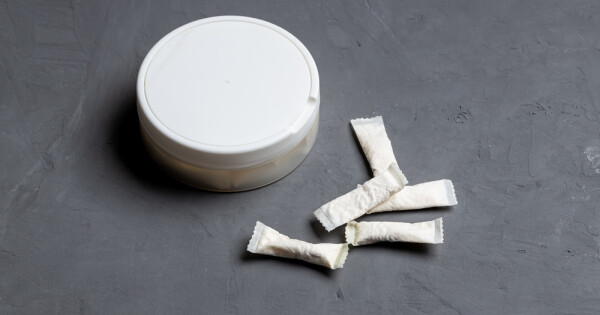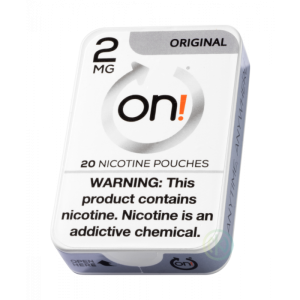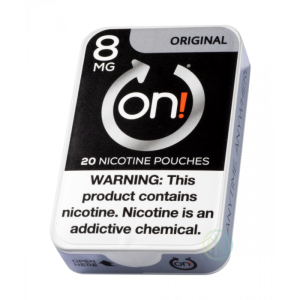Customs Minister Casey Costello has reduced the excise tax on heated tobacco products. Image: RNZ / Angus Dreaver Associate Health Minister Casey Costello has lowered the excise tax on Heated Tobacco Products (HTPs), with the intention of making them more appealing as a substitute for smoking.
Costello, who also serves as Customs Minister, has decreased the excise rate on HTPs by 50 percent, effective from 1 July—a change quietly posted on the Customs website.
Costello declined to be interviewed by RNZ, but a spokesperson stated that her decision to lower the cost of these products was to motivate smokers to transition to less harmful options.
However, Janet Hoek, a Professor of Public Health at the University of Otago, mentioned to RNZ that the action appeared to be biased towards the tobacco industry.
“Indeed, that is a development that tobacco companies would have eagerly anticipated,” Hoek remarked. “This is not guidance that originates from the Ministry (of Health). It certainly appears to be counsel that aligns with the interests of the tobacco industry.”
The tobacco behemoth Philip Morris possesses a prominent brand in the HTP market, the IQOS, which involves inserting tobacco sticks into a device where they are heated instead of combusted.
Philip Morris has advocated for a reduction in the excise tax on HTPs, suggesting to the Tax Working Group in 2018 that the government ought to “set a tax rate for heated tobacco products markedly lower than the tax rate” applied to tobacco.
In a statement to RNZ, Costello mentioned that vaping has been an effective tool for quitting smoking and she is interested in exploring whether HTPs could also serve as a valuable cessation aid.
“Vaping is not effective for everyone, and some individuals attempting to quit have made multiple attempts. HTPs share a comparable risk profile with vapes and are currently legally accessible, so we are examining the effects of halving the excise on those products,” Costello explained.
Costello’s curiosity in tobacco and nicotine products that do not involve smoking Earlier this year, the government discontinued Labour’s smokefree initiative, which health authorities had characterized as an “ultimate objective” for the tobacco industry in New Zealand.
These actions would have drastically reduced the number of tobacco retailers from 6,000 to 600, removed 95 percent of the nicotine from cigarettes, and established a generation free from smoking by prohibiting sales to anyone born after 2009.
Costello has expressed her dedication to the Smokefree 2025 target and is also contemplating whether permitting the sale of oral nicotine products, such as snus and nicotine pouches, could contribute to achieving this objective.
Ministry of Health documents indicate that in March, Costello suggested to a Cabinet committee to “consent in principle to allowing the sale of tobacco and nicotine products that do not involve smoking, provided the evidence demonstrates they are considerably less harmful than smoking.”
However, the ministry cautioned Costello against allowing the sale of snus and nicotine pouches.
“On balance, we do not endorse expanding the variety of nicotine products available for purchase in New Zealand,” it stated. “Additional products may exacerbate existing concerns regarding young individuals’ dependency on nicotine with minimal advantage.”
The ministry informed Costello that there was “insufficient evidence” that snus aids people in quitting smoking. “The risk of feeling addicted may be greater for snus than for tobacco that is smoked. The use of snus may heighten the risk of certain health issues.”
The ministry expressed concerns about nicotine pouches, noting that they are a novel product with growing concerns surrounding them.
“There is not reliable evidence to date to substantiate their potential use as a lower-risk alternative to smoking, and there is currently no evidence of their efficacy for smoking cessation,” officials communicated to Costello.
“There is evidence of them being promoted to children in other countries, and they are linked with nicotine reliance and addiction. Children, adolescents, and non-smokers are deemed at high risk of dependence.”
In her statement to RNZ, the Minister adopted a more cautious stance on nicotine pouches compared to what was suggested in the Cabinet committee document.
“I have reservations about nicotine pouches, which appear to be aimed at young individuals,” Costello stated.
The Associate Health Minister indicated that she would continue to seek counsel regarding the efficacy and safety of alternatives to smoking.
“If there are tobacco or nicotine products that are significantly less harmful than smoking—that is, they have a comparable risk profile to vaping—then I want advice on whether it’s beneficial to have them accessible to assist people in quitting smoking,” she said.
“The balance we need to achieve is to prevent young individuals from becoming addicted to nicotine. New Zealand did not have any regulations concerning vaping until it was too late, and youth vaping became unmanageable.”
Nicotine pouches, which users position between the gum and the lip to absorb nicotine into the bloodstream, are aggressively marketed to young individuals by influencers on TikTok and Instagram.
Major tobacco companies have capitalized on nicotine pouches as an alternative source of income.
Philip Morris acquired Swedish Match, the producer of the Zyn brand of nicotine pouches, for $27 billion in 2022.
British American Tobacco, the owner of the Velo and Lyft brands of nicotine pouches, has advocated for the government to legalize these products in New Zealand. ”
The government’s omission to include smokeless oral nicotine products within the same regulatory framework as vaping products represents a substantial missed opportunity for progressing Smokefree 2025,” it remarked in a 2021 submission on the government’s smokefree strategies.



